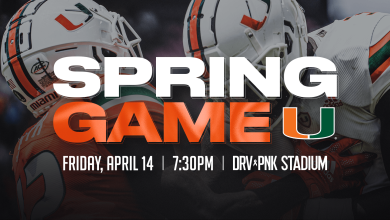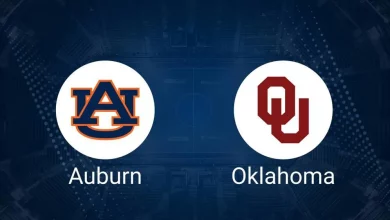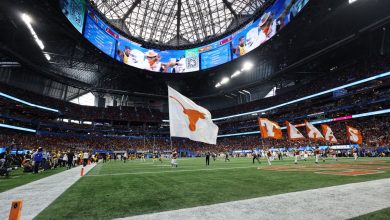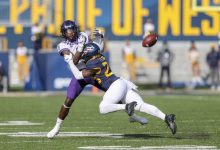Bears safety Jaquan Brisker says he won’t change his aggressive playing style, despite his history of concussions.

In a sport as physically demanding and dangerous as professional football, players often walk a thin line between competitive edge and long-term health. For Chicago Bears safety Jaquan Brisker, that balance is not up for negotiation. Despite a documented history of concussions over his short NFL career, the hard-hitting defensive back made it clear this offseason that he has no intention of softening his physical, aggressive approach to the game.
“I play football one way — fast and physical,” Brisker told reporters during the Bears’ Organized Team Activities (OTAs). “That’s who I am. I can’t change that.”
The statement raised eyebrows among fans, analysts, and even former players. In an era when player safety, especially around concussions, is being scrutinized more than ever, Brisker’s stance is bold — and for some, concerning. Still, for the 24-year-old safety, the risk comes with the territory.
A Hard-Hitting Rise to the NFL
Brisker’s path to the NFL was anything but conventional. He began at Lackawanna College, a junior college in Pennsylvania, before transferring to Penn State. There, he developed a reputation as a relentless, physical defender. He didn’t just play the safety position — he patrolled it.
When the Bears selected him in the second round of the 2022 NFL Draft, they were getting a player known for reading offenses with speed and precision, someone unafraid to lower his shoulder and send a message. It didn’t take long for Brisker to prove himself.
In his rookie season, Brisker recorded over 100 total tackles and was among the team leaders in forced fumbles. Whether flying downfield to stuff a screen or delivering a crunching hit over the middle, Brisker quickly became one of Chicago’s most dynamic defenders.
But along with the highlight reels came the injuries — particularly concussions.
Mounting Head Injuries and Missed Time
Brisker suffered his first documented NFL concussion during a Week 11 game against the Atlanta Falcons in 2022. Although he only missed one snap and returned to finish the game, the incident raised initial concerns.
More troubling was what came next. In October 2023, Brisker suffered another concussion, this time during a game against the Carolina Panthers. The effects lingered. He would not return that season, missing the final 12 games and raising red flags among the Bears’ front office and medical staff.
In total, Brisker has sustained at least three documented concussions in just two full NFL seasons. It’s a rate that would be concerning for any position — let alone one that requires flying into collisions multiple times a game.
Despite the history, Brisker has made it clear: he won’t be dialing back the intensity.
“I’m Not Changing Who I Am”
Brisker’s comments during OTAs were unambiguous. When asked if he had considered adjusting his technique or playing less aggressively to protect himself, he responded quickly.
“No. That’s not how I play. That’s not how I got here,” he said. “You don’t make it in this league second-guessing every hit. I play smart, but I play hard. Always.”
While he acknowledged that health is important — and that he’s following all medical guidance — Brisker emphasized that football is a violent game. “You can’t play scared,” he added.
His position resonated with some of his teammates, especially on the defensive side of the ball. Veteran linebacker Tremaine Edmunds praised Brisker’s attitude: “You want guys like that on your team. He brings energy, toughness, and accountability every day. We all know the risks.”
Team’s Response: Supportive, But Cautious
While the Bears’ front office hasn’t publicly pushed back against Brisker’s stance, they are clearly monitoring his health closely. General Manager Ryan Poles has made player wellness a focal point of his tenure and spoke candidly after the 2024 season about Brisker’s situation.
“There’s the human side, and we care deeply about Jaquan,” Poles said. “Of course, we want to see him on the field. But more than anything, we want him to be healthy — now and in the future.”
Head coach Matt Eberflus, a former defensive coordinator who values hard-hitting, fundamentally sound defense, also walked a careful line in addressing the matter.
“You love his intensity. You love his commitment. But as coaches, we have to guide players, make sure they’re taking care of themselves,” Eberflus said during the first week of OTAs. “That includes proper technique, awareness, and listening to medical staff.”
The Bigger Picture: Concussions and NFL Culture
Brisker’s case is just one example of the broader conversation around concussions in the NFL — a discussion that’s been building for over a decade.
Following numerous studies, lawsuits, and the tragic stories of former players dealing with CTE (chronic traumatic encephalopathy), the league has revamped protocols. Independent neurologists are now standard at games, players must pass a multi-step return-to-play protocol, and rules around head contact continue to evolve.
But at the core of football lies violence — and there’s no real way to eliminate risk.
“Football is controlled chaos,” said ESPN analyst and former safety Ryan Clark. “There’s no way to make it totally safe. You do the best you can, but it will always be a violent sport.”
Brisker is aware of these realities but views them as part of the deal.
“You know what you’re signing up for,” he said. “You take care of your body, follow the protocols, but at the end of the day, you go out there and do your job.”
Fans and Former Players Weigh In
Reactions to Brisker’s comments have been mixed.
Some fans appreciate the “old-school” mentality — a player refusing to back down in a league that’s increasingly scrutinized for protecting quarterbacks and limiting big hits.
“He’s a throwback, man,” one fan wrote on Twitter. “We need more guys like Brisker who play with heart and aren’t afraid to hit.”
But others have expressed concern, particularly on forums like Reddit and team-focused blogs.
“I love Brisker’s game, but I don’t want to see this guy dealing with brain issues at 35,” one fan wrote. “The Bears should help him find a smarter way to play.”
Former players have also weighed in. Chris Borland, who famously retired from the NFL after one season due to concussion concerns, told The Athletic, “I admire Brisker’s toughness, but I hope he knows what’s at stake long-term.”
What the Future Holds
As the Bears head into the 2025 season, Brisker will remain a critical part of their defensive core. His versatility, instincts, and physicality are unmatched in the Chicago secondary. Coaches are expected to monitor his reps during training camp and give him ample rest, but he’s still projected as a Week 1 starter.
If he can stay healthy, Brisker could be in line for a breakout year. He’ll have more help around him than ever before, with an improved front seven, including new pass rushers that should relieve pressure on the secondary.
But the question will continue to linger: how long can Brisker maintain his current level of play without putting his health in jeopardy?
Jaquan Brisker isn’t naïve. He knows the dangers. He’s had the headaches, the fogginess, the missed games. But he also knows who he is — and he’s not about to become someone else just to reduce the risk.
“Everything I’ve achieved, it’s because I play the way I play,” Brisker said. “I can’t turn that off.”
For now, Bears fans will cheer every big hit, every third-down stop, and every game Brisker plays at full speed. But they’ll also hold their breath each time he lowers his helmet, hoping that the next play doesn’t become the one that changes everything.
In a league built on controlled violence, Brisker remains unapologetically himself — aggressive, intense, and unafraid. And that might be both his greatest strength and his greatest risk.









